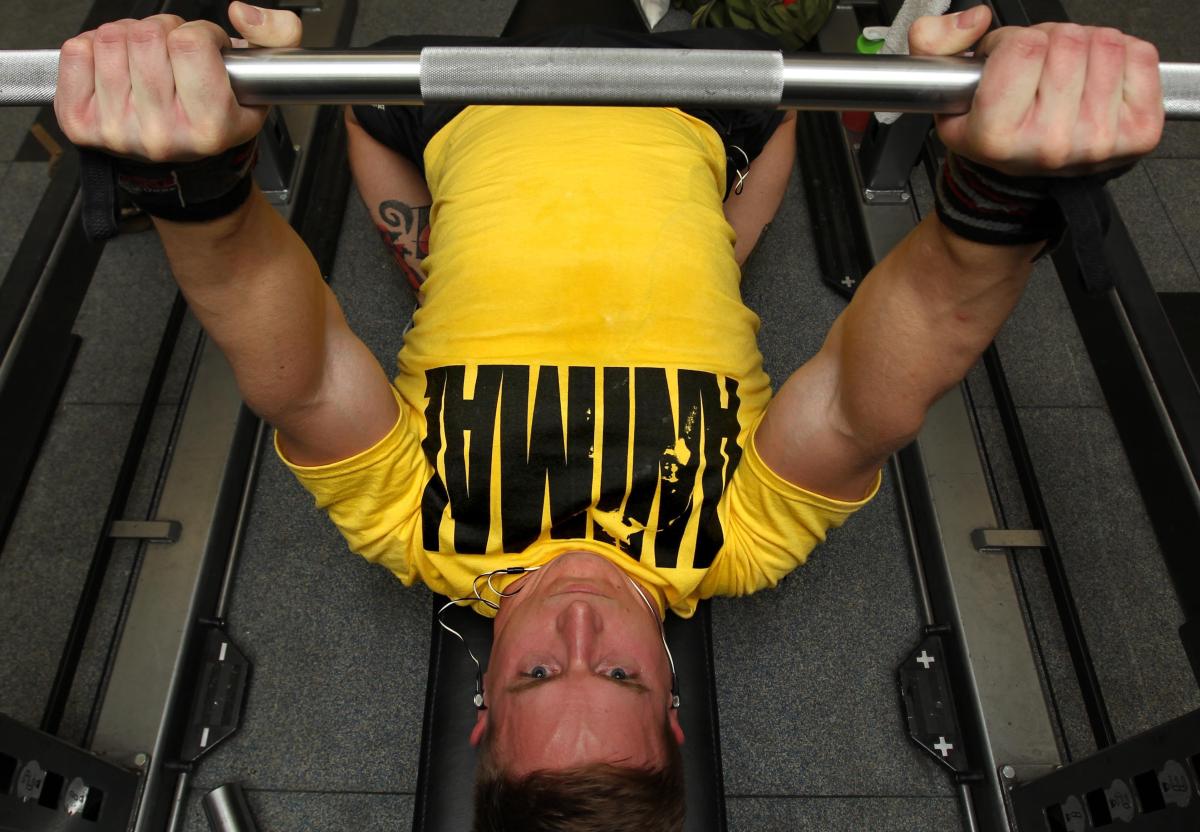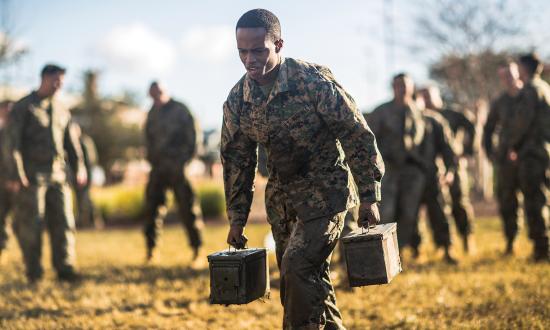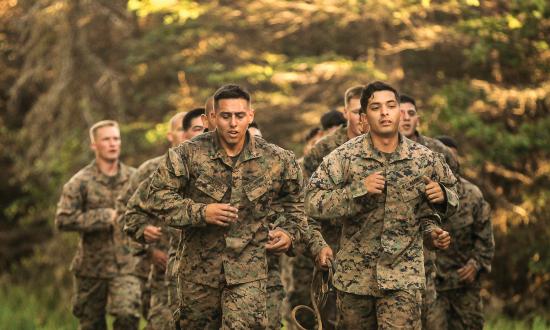Physical fitness and nutrition are lacking in today’s Marine Corps. Although the Corps is the fittest branch, Marines should always strive to be better than others and be the best Marine they can be. Unfortunately, the average Marine has minimal physical fitness and nutrition knowledge, and the service needs to invest in nutrition and physical education specialists at every battalion level command. By investing in a more comprehensive nutrition and physical fitness education program, lead by force fitness instructors, the Marine Corps will gain fitter Marines, a better-educated force, see a decrease in the number of Marines in the body composition program (BCP), and see a decrease in unhealthy Marines.
Unhealthy Marines
Approximately 4,800 Marines were overweight in 2016, a number that has been gradually increasing yearly—a statistic that does not show anywhere near the actual number of unhealthy Marines currently within the ranks. Other factors that play a role in the overall fitness of the Marine Corps are underweight Marines, Marines who are barely within standards because of naturally large necks, and Marines who cut unhealthy amounts of weight to meet height and weight standards.
Underweight Marines can be just as much of a liability as overweight Marines. Being underweight makes it difficult for Marines to complete activities such as hiking with weight or evacuating a fellow Marine to safety. These Marines may be assigned to the remedial conditioning program (RCP); however, this program has not been used to its full potential as many Marines still fall short of physical fitness standards.
There also are many Marines who make it through body composition tests while still looking overweight and tend to perform lower on physical fitness tests compared to their healthy-weight counterparts. Many of these Marines did not want to end up unfit, but, because of work or stress, have found themselves out of shape. These Marines may be meeting the standards even though they have a lot of room for improvement.
Finally, there are Marines who lose a lot of weight just before weighing in to meet standards. These Marines often put themselves through programs like those used by professional mixed-martial arts fighters in preparation for an upcoming bout. They dehydrate themselves, overtrain their bodies, or use “sweat suits,” which may not lead to consistent and healthy weight loss. Although the number of Marines who do this is not exactly known, they do exist and are in a constant struggle to meet Marine Corps standards.
Many Marines focus on becoming stronger and spend too much time in the gym. It is common to see new Marines in the gym doing exercises improperly or overtraining and not focusing on a holistic approach to their overall fitness. Overtraining can lead to short-term and long-term injuries that can affect the Marine, the unit, and the readiness of the Marine Corps. A Marine can appear to be in shape, with a low body-fat percentage, but still barely passes the physical fitness or combat fitness tests. Proper form and knowledge are needed in the gym to avoid unwanted injuries and achieve desired results.
Force Fitness Instructors
Currently, the Marine Corps has invested in the force fitness instructor (FFI) program, awarding Marines the secondary military occupational code (MOS) of 0919. During this course, future FFIs learn about nutrition, progressive training-plan building and implementation, and the biomechanics of the body. This program was designed to be employed at the battalion level but lacks support from senior leaders. Usually, these Marines, who are already physically fit, attend the FFI course at Quantico, Virginia, and return to their units. On their return, they typically are assigned back to their original duties, with minimal to no influence on fitness training at the battalion level.
To gain the full benefit of the program, the Marine Corps needs to better employ these Marines in their newly awarded secondary MOS. These Marines need to conduct FFI duties, while assigned to the Battalion S-3 office. This will allow FFIs to have more insight into the BCP/RCP process, influence battalion physical-fitness events, and be a constant point of contact for the BCP/RCP Marines. With their in-depth knowledge, battalion FFIs can create nutrition plans and realistic goals for the Marines assigned to the BCP/RCP programs. They also can design a progressive training plan for each Marine, which will assist them with a safe, but effective, fitness regimen during the BCP process. FFIs can help Marines be knowledgeable about their own health before it becomes a problem, and they fall below Marine Corps standards.
The Marine Corps FFI Headquarters personnel created an application to assist Marines; however, an app is nowhere near as knowledgeable as a Marine at every battalion. Ultimately, creating more FFIs, educating them about nutrition, and spreading them out to battalions to advise, create diet plans, and teach proper exercise techniques will ultimately reduce the number of unhealthy Marines before the Marine Corps is affected in a major way.
To receive the full benefit of the FFI program, the Marine Corps needs to invest in a comprehensive evaluation FFI employment from the battalion level up. Creating a chain of command for the FFIs gives Marines resources and experiences that help them achieve their fitness goals. Marine Corps Community Services (MCSS) already employs nutritionists and fitness experts at installation gyms, and battalion-level FFIs can employ these resources to identify at-risk Marines. Currently, Marines and leaders usually use these MCCS experts in a reactive manner, in response to an increase in BCP Marines, rather than in a proactive way to prevent Marines from being assigned in the first place.
Knowledgeable Marines are powerful Marines—the more knowledge a Marine has about his or her own health will make a more powerful Marine Corps. Through additional Training and Education Command investment in FFIs and a better use of available health specialists, the Marine Corps can gain a healthier, fitter, better-educated force and propel fitness across the force to unprecedented levels.
References
Thomas Faber, “Proper Workout Routines: The Well-Rounded Approach,” Health Center, 4 November 2019.
W. A. Krehl, “The Role of Nutrition in Maintaining Health and Preventing Disease,” Health Values 7, no. 2: 9–13.
Marine Corps Order 1500.62, Marine Corps Force Fitness Instructor Program.





